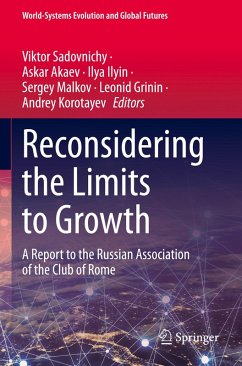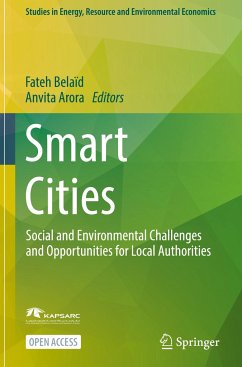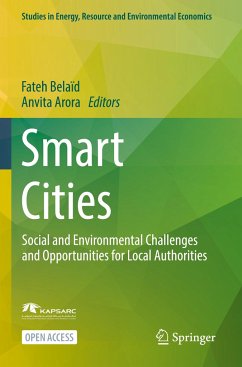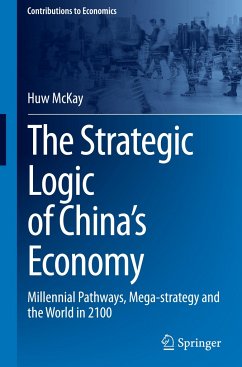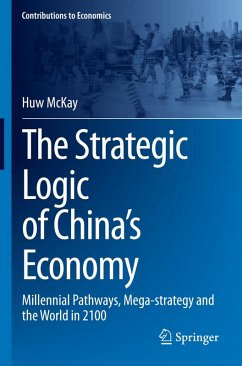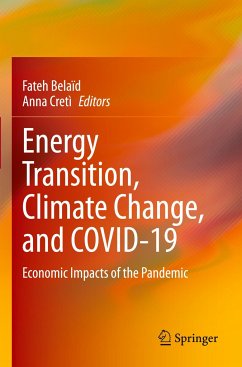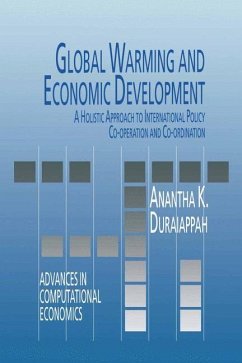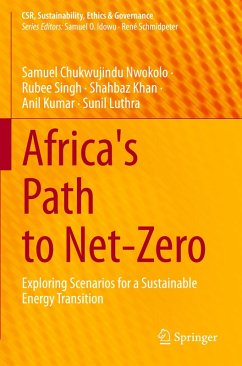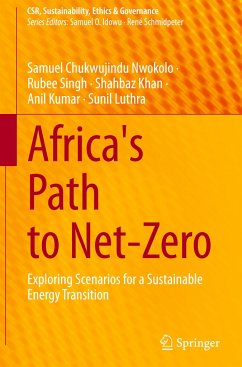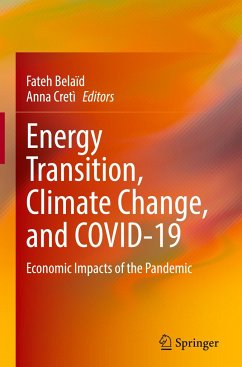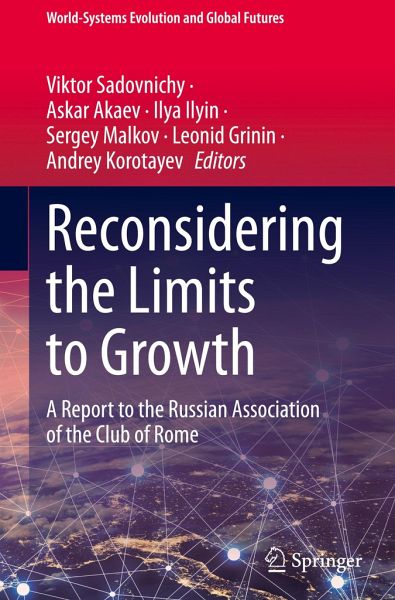
Reconsidering the Limits to Growth
A Report to the Russian Association of the Club of Rome
Herausgegeben: Sadovnichy, Viktor; Akaev, Askar; Ilyin, Ilya; Malkov, Sergey; Grinin, Leonid; Korotayev, Andrey

PAYBACK Punkte
65 °P sammeln!
Echoing the famous "The Limits to Growth" report from 1972, this edited volume analyses the changes that the World System has undergone to the present, on the fiftieth anniversary of the original report. During the past fifty years, both the concept and understanding of these limits have significantly changed. This book highlights that the evolution of the World System has approached a new critical milestone, moving into a fundamentally new phase of historical development, when the old economic and social technologies no longer work as efficiently as before or even begin to function counterpro...
Echoing the famous "The Limits to Growth" report from 1972, this edited volume analyses the changes that the World System has undergone to the present, on the fiftieth anniversary of the original report. During the past fifty years, both the concept and understanding of these limits have significantly changed. This book highlights that the evolution of the World System has approached a new critical milestone, moving into a fundamentally new phase of historical development, when the old economic and social technologies no longer work as efficiently as before or even begin to function counterproductively, which leads the World System into a systemic crisis.
The book discusses the transition of human society to a new phase state, the shape of which has not yet been determined. New approaches are needed for both, for the analysis of the global situation, and for forecasts. The book is based on an integrated approach including the world-systems, historical and evolutionaryperspectives, as well as a systematic view of society, in which changes in one subsystem cause transformations in others. Through mathematical modeling, it defines the main vectors of transformations of the World System; makes a detailed forecast of the development of all the main subsystems of the society and the World System, while presenting horizons of changes from short-term to ultra-long-term; and presents different development scenarios as well as recommendations on how to achieve a transition to the most favorable scenario.
The book will appeal to members and followers of the Club of Rome, policy-makers, as well as to scholars from various disciplines interested in a better understanding of the World System evolution, global futures, development studies, climate change, and future societies.
The book discusses the transition of human society to a new phase state, the shape of which has not yet been determined. New approaches are needed for both, for the analysis of the global situation, and for forecasts. The book is based on an integrated approach including the world-systems, historical and evolutionaryperspectives, as well as a systematic view of society, in which changes in one subsystem cause transformations in others. Through mathematical modeling, it defines the main vectors of transformations of the World System; makes a detailed forecast of the development of all the main subsystems of the society and the World System, while presenting horizons of changes from short-term to ultra-long-term; and presents different development scenarios as well as recommendations on how to achieve a transition to the most favorable scenario.
The book will appeal to members and followers of the Club of Rome, policy-makers, as well as to scholars from various disciplines interested in a better understanding of the World System evolution, global futures, development studies, climate change, and future societies.





